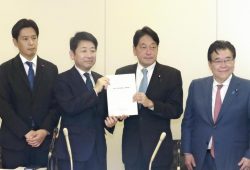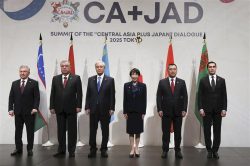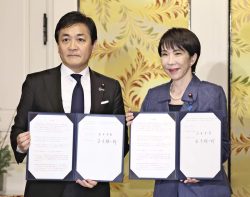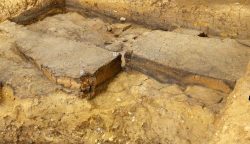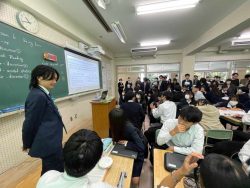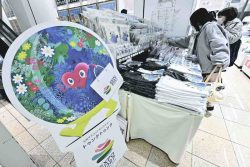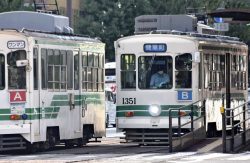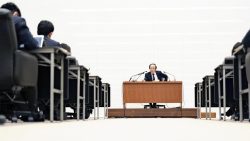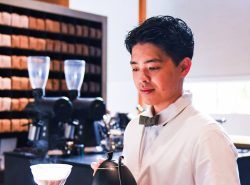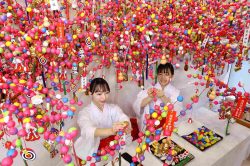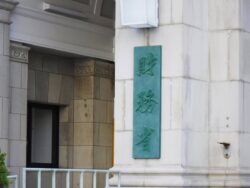No Quota for Upper House Abe Faction Members in Election Years, Received Full Amount of Party Ticket Sales as Kickbacks
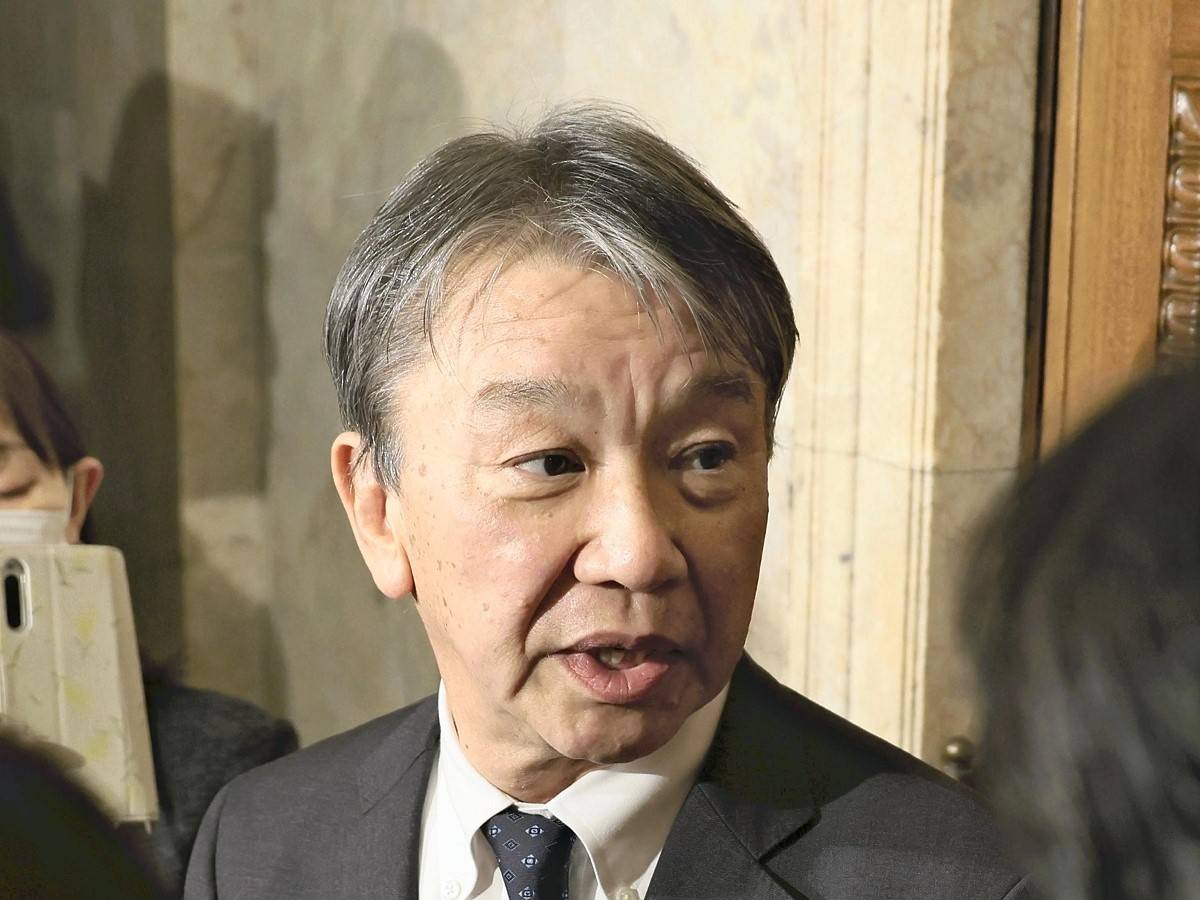
House of Councillors member Yasutada Ono speaks to reporters at the Diet Building on Dec. 11.
15:45 JST, December 24, 2023
The Abe faction is suspected of exempting its House of Councillors members from sales quotas for fundraising party tickets and giving them the full amount of their sales as kickbacks in years when their seats were contested in upper house elections, The Yomiuri Shimbun has learned.
The Liberal Democratic Party’s largest faction continued the practice at least through the 2019 upper house election, according to sources.
The special investigation squad of the Tokyo District Public Prosecutors Office is believed to be aware of this matter and suspects that the off-the-books money was intended to be used for election expenses.
The faction formerly led by the late Prime Minister Shinzo Abe is suspected of giving its members cash kickbacks equivalent to the amount of party ticket sales they sold in excess of their quota. Neither the faction nor the recipients recorded the kickbacks as income in their political funds reports, making this money off-the-books funds.
Prosecutors are investigating alleged violations of the Political Funds Control Law.
According to the sources, upper house members were not given a quota in years when there was an election.
The faction’s fundraising parties are usually held in the spring, unless there is a disaster or an outbreak of infectious disease. Upper house members whose seats are being contested in summer elections would receive the full amount of the party tickets they sold, to prepare for the campaign.
House of Representatives members were not subject to such exemptions because lower house elections take place irregularly following a lower house dissolution, the sources said.
In the 99-member Abe faction, 40 are upper house lawmakers. Yasutada Ono, 64, is suspected of failing to document more than ¥50 million in his reports.
Allegations have also emerged that Hiroshige Seko, 61, a former LDP secretary general for the upper house, and Seiko Hashimoto, 59, a former Olympic minister, each failed to state more than ¥10 million in their reports. All three of these members were reelected in 2019.
According to the faction’s reports, party income was down by about ¥18 million in 2016 from the previous year, and down by about ¥55 million in 2019 from the year before. An upper house election was held in both years. The lower revenue is believed to stem from the practice of giving kickbacks equal to the full amount of ticket sales to upper house members participating in the election.
“The money was pooled to cover election expenses and the following year’s party ticket sales quotas,” said an official in the office of an upper house lawmaker who allegedly received several million yen in kickbacks over five years. This included a year in which the lawmaker’s seat was contested.
"Politics" POPULAR ARTICLE
-

Japan to Support Central Asian Logistics Route That Bypasses Russia, Plan to Be Part of Upcoming Summit in Tokyo
-

Japan to Tighten Screening of Foreigners’ Residential Status by Providing Information of Nonpayment of Taxes
-
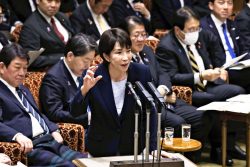
Takaichi Cabinet Approval Holds at 72% as Voters Back Aggressive Fiscal Stimulus, Child Benefits
-

Chinese, Russian Bombers Flew Unusual Path by Heading Toward Tokyo; Move Likely Meant to Intimidate Japan
-
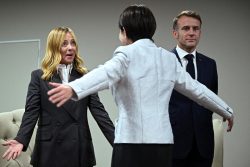
Takaichi Meets Many World Leaders at G20 Debut in Johannesburg; Speaks with Heads of Countries Including Italy, U.K., Germany, India
JN ACCESS RANKING
-

Keidanren Chairman Yoshinobu Tsutsui Visits Kashiwazaki-Kariwa Nuclear Power Plant; Inspects New Emergency Safety System
-

Imports of Rare Earths from China Facing Delays, May Be Caused by Deterioration of Japan-China Relations
-

University of Tokyo Professor Discusses Japanese Economic Security in Interview Ahead of Forum
-

Japan Pulls out of Vietnam Nuclear Project, Complicating Hanoi’s Power Plans
-

Govt Aims to Expand NISA Program Lineup, Abolish Age Restriction


